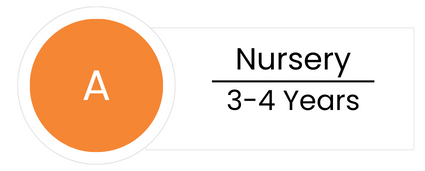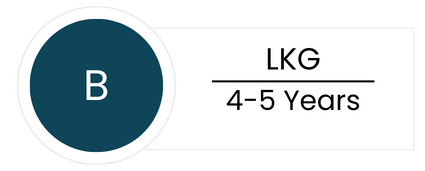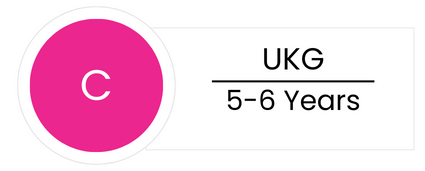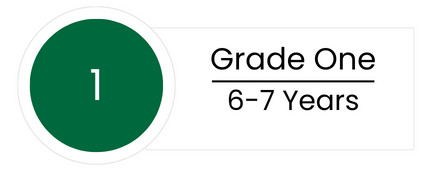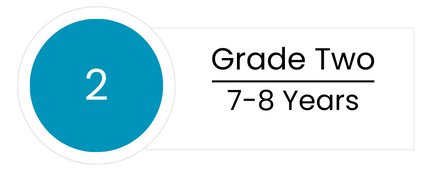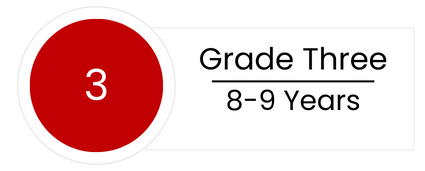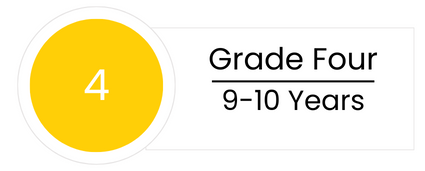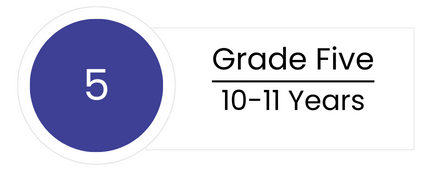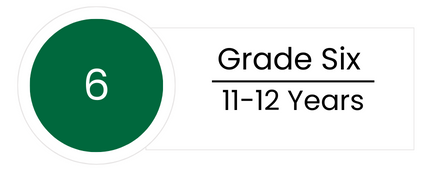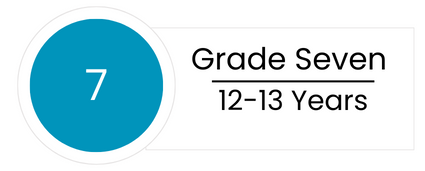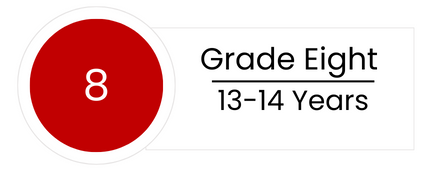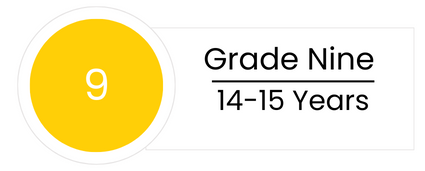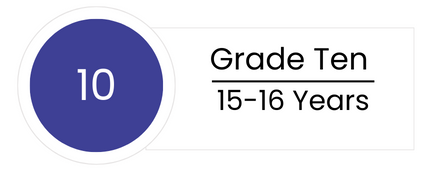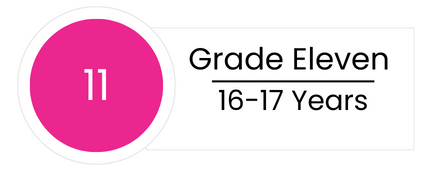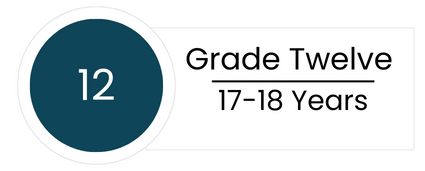Currently Empty: ₹0.00
Class 10 Online School is an accredited school. Are you looking for an Online school where your child can attend classes from the comfort of their home? If your answer is yes, you have come to the right place. We are the most popular Online Senior Secondary School which can provide the best education and valid certificate to your child?
Class 10 Online School offers the Senior Secondary Program. It follows the National Curriculum Framework 2023. Students are offered options to choose their board for their 12th Board Examination. They can either choose CBSE (Central Board of Secondary Education) or NIOS (National Institute of Open Schooling). Both the Boards are recognized by the Government of India. CBSE is more popular and is followed by most Public Schools in India. These are regular physical schools. NIOS is an “Open School” which caters to the needs of a heterogeneous group of students up to the pre-degree level. It was started as a project with in-built flexibilities by the Central Board of Secondary Education (CBSE) in 1979.
NIOS operates through more than 7400 Study Centers spread all over India and abroad. It also has study centers for Indian expatriates in the United Arab Emirates, Oman, Kuwait, Nepal, Canada, Kingdom of Saudi Arabia, Australia, United Kingdom, New Zealand, Malaysia, Singapore and the United States of America.
After completion of Grade 9, each student has to select either CBSE or NIOS Board. Subjects offered for each Board are as below: –

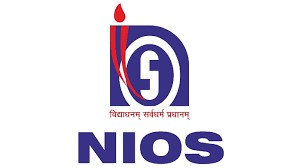
CBSE Subscription
Physical Product :
CBSE Books
Workbooks
Activity schedule
Digital Product:
Parent app
Services:
Individualised attention during live online classes
NIOS Subscription
Physical products:
NIOS Books
Workbook for children
Activity schedule
Digital Product:
Parent app
Services:
Individualised attention during live online classes
CBSE SUBJECT CHOICES & EXAM SCHEME
There are a total of 5 compulsory subjects that students have to appear for in the CBSE 10th board exams 2024, these include Mathematics, English, Science, Social Science, and Hindi. In all CBSE schools, Hindi is the second compulsory language after English. The choice of the third language is left up to the students and includes options available in Group L. In the CBSE Class 10 “Best of 5” rule, a student’s final score is calculated based on their performance in the best five subjects out of the six they have studied. Options available are as below: –
Languages - (Group-L)
Arabic, English, French German, Spanish, Tamil, Telugu, Hindi, Kannada, Malayalam, Marathi, Sanskrit, Urdu
Main Subjects - (Group-A1)
Mathematics, Science, Social Science
Other Academic Electives -(Group-A2)
Carnatic Music (Vocal), Hindustani Music (Vocal), Painting, Computer Applications
CBSE CURRICULUM
SCIENCE FOR CLASS 10
Food
Materials
- Different kinds of materials
- How things change/react with one another?
- Materials of common use
- How are elements classified?
The World of the Living
- Our Environment
- How do we stay alive?
- Control in the living
- Reproduction in the living
- Heredity and evolution
Moving Things, People and Ideas
How Things Work
- Electric circuits
- Magnets
Natural Phenomena
Natural Resources
- Conservation of Natural Resources
- The regional environment
- Sources of energy
MATH FOR CLASS 10
- Real Numbers
- Polynomials
- Pair of Linear Equations in two Variables
- Quadratic Equations
- Arithmetic Progressions
- Triangles
- Circles
- Construction
- Areas related to Circles
- Surface Areas and Volumes
- Statistics
- Probability
ENGLISH FOR CLASS 10
Language Items
- Sequence of tenses
- Reported speech in extended texts
- Modal auxiliaries
- Non-finites (infinitives, gerunds, participles)
- Conditional clauses
- Complex and compound sentences
- Phrasal verbs and prepositional phrases
- Cohesive devises
- Punctuation
Method and Techniques
- Role Playing
- Simulating real-to-life situations
- Dramatising and miming
- Problem solving & decision making
- Interpreting information given in tabular form and schedule
- Using newspaper clippings
- Borrowing situations from the world around the learners, from books and from other disciplines
- Using language games, riddles, puzzles and jokes
- Interpreting pictures/sketches/cartoons
- Debating and discussing
- Narrating and discussing stories, anecdotes, etc
- Reciting poems
- Working in pairs and groups
- Using media inputs – computer, television, video cassettes, tapes, software packages
HISTORY FOR CLASS 10
Events & Process
- Nationalism in Europe
- Nationalism in Indo-China
- Nationalism in India
Economics and Livelihood
- Industrialisation (1850s – 1950s)
- Urbanisation and Urban lives
- Trade and Globalisation
Culture, Identity and Society
- Print Culture and Nationalism
- History of the Novel
GEOGRAPHY FOR CLASS 10
Resources and their Development
- Natural Resources
- Forest and wildlife resources
- Agriculture
- Water resources
- Mineral resources
- Power resources
- Mineral resources
- Power resources
- Manufacturing industries
- Transport, communication and trade
POLITICAL SCIENCE FOR CLASS 10
- Working of democracy
- Power sharing mechanisms in democracy
- Competition and contestations in democracy
- Outcomes of democracy
- Challenges to democracy
ECONOMICS FOR CLASS 10
- The Story of development
- Money and Financial System
- Role of Service Sector in Indian Economy
- Globalization
- Consumer Awareness
NIOS SUBJECT CHOICES & EXAM SCHEME
For Certification, a minimum of five subjects including atleast one language or atmost two languages are compulsory.
Group A
Secondary Course offers a choice of languages i.e. English, Hindi, Urdu, Telugu,
Kannada, Marathi, Sanskrit, Malayalam, Arabic and Tamil.
Group B
Mathematics, Science and Technology, Social Science, Economics, Home Science, Business Studies, Data Entry
Operations, Psychology, Indian Culture and Heritage, Accountancy, Entrepreneurship, Hindustani Music, Carnatic Sangeet, Painting and Data Entry Operations.
NIOS CURRICULUM
ACCOUNTANCY
Model 1. Introduction and Basic Concepts
- Introduction to Accounting
- Accounting Concepts and Conventions
- Accounting Terms
Model 2. Journal and Subsidiary Books
- Accounting Equation
- Bank reconciliation Statement
- Purchases and Sales Book
- Double Entry System
- Journal
- Cash Book
Model 3. Ledger and Trial
- Balance
- Ledger
- Trial Balance and Accounting Errors
Model 4. Depreciation, Provisions and Reserves
- Provisions and Reserves
- Depreciation
Model 5. Preparation of Financial statements
- Financial Statements (Without adjustments)
- Financial Statements (With adjustments)
Model 6. Computers in Accounting
- Introduction to Tally
- Computers in Accounting
SCIENCE & TECHNOLOGY
Module 1: Measurement in Science
- Measurement in Science & Technology
Module 2: Matter in Our Surroundings
- Atoms and Molecules
- Chemical Reaction and Equations
- Atomic Structure
- Periodic Classification of Elements
- Chemical Bonding
- Acids, Bases and Salts
Module 3 Moving Things
- Motion and its Description
- Force and Motion
- Gravitation
Module 4 Energy
- Sources of Energy
- Work and Energy
- Thermal Energy
- Light Energy
- Electrical Energy
- Magnetic Effect of Electric Current
- Sound and Communication
Module 5 The Living World
- Classification of Living Organisms
- History of Life on Earth
- Building Blocks of Life - Cell and Tissue
- Life Process I: Nutrition, Transportation,
- Life Processes II: Control and Coordination
- Life Processes III: Reproduction
- Heredity
Module 6: Natural Resources
- Air and Water
- Metals and Non-metals
- Carbon and its Compounds
Module 7: Humans and Environment
- Natural Environment
- Human Impact on Environment
- Food Production
- Health and Hygiene
MATHEMATICS
MODULE I: ALGEBRA
- Chapter 1. Number Systems
- Chapter 2. Exponents and Radicals
- Chapter 3. Algebraic Expressions and Polynomials
- Chapter 4. Special Products and Factorization
- Chapter 5. Linear Equations
- Chapter 6. Quadratic
- Chapter 7. Arithmetic Progressions
MODULE II: COMMERCIAL MATHEMATICS
- Chapter 8. Percentage and its Applications
- Chapter 9. Instalment Buying
MODULE III: GEOMETRY
- Chapter 10. Lines and Angles
- Chapter 11. Congruence of Triangles
- Chapter 12. Concurrent Lines
- Chapter 13. Quadrilaterals
- Chapter 14. Similarity of Triangles
- Chapter 15. Circles
- Chapter 16. Angles in a Circle and Cyclic
- Chapter 17. Secants, Tangents and their Properties (
- Chapter 18. Constructions
- Chapter 19. Co-ordinate Geometry
MODULE IV: MENSURATION
- Chapter 20. Perimeters and Area of Plane Figures
- Chapter 21. Surface Area and Volume of Solid Figures
MODULE V: TRIGNOMETRY
- Chapter 22. Introduction to Trigonometry
- Chapter 23. Trigonometric Ratios of Some Special Angles
MODULE VI: STATISTICS
- Chapter 24. Data and Their Representation
- Chapter 25. Measures of Central Tendency
- Chapter 26. Introduction to Probability
ECONOMICS
Module 1: Understanding Economics
- What is Economics
- Human Wants
- Goods and Services
Module 2: About Economy
- Economy - Its Meaning and Types
- Central Problems of an Economy
- Basic Economic Activities
Module 3: Producing Goods and Services
- Production
- Presentation of Data
- Cost and Revenue
Module 4: Distribution of Goods and Services
- Demand
- Supply
- Determination of Price and Quantity
- Market
- Role of Government in Determination of Price and Quantity System (
Module 5: Money, Banking and Insurance
- Money and Its Roles
- Banking and Credit
- Savings and Insurance
Module 6: Presentation and Analysis of Data in Economics
- Collection and Presentation of Data
- Analysis of Data
Module 7: Indian Economy
- An Overview of Indian Economy
- Sectoral Aspects of Indian Economy
- Challenges before Indian Economy
- Indian Economy in Global Context
Module 8: Contemporary Economic Issues
- Environment and Sustainable Development
- Consumer Awareness
BUSINESS STUDIES
THEORY
Module 1: Introduction to business
- Nature and Scope of Business
- Industry & Commerce
Module 2: Forms of business organization
- Sole Proprietorship, Partnership & Hindu Undivided Family
- Cooperative Societies and Joint Stock Companies
Module 3: Service Sector
- Transport Services
- Warehousing Services
- Communication Services
- Postal and Courier Services
- Banking Services
- Insurance
- Outsourcing
Module 4: Buying, Selling and Distribution
- Purchase and Sale
- Channels of Distribution
- Retail Trade
- Advertising
- Sales Promotion and Personal Selling
Module 5: Consumer Awareness
- Consumer – Rights and Responsibilities
- Consumer Protection
Module 6: Career Opportunities in Business
- Choosing a Career
- Entrepreneurship
PRATICAL
- Practical awareness about Business Studies.
ENTREPRENEURSHIP
Model 1. Entrepreneurship
- Entrepreneur
- Introduction to Entrepreneurship
- Importance of Entrepreneurship
Model 2. Creativity and Innovation
- Entrepreneur as an Innovator and Problem Solver
- Creativity: A Necessity for Entrepreneurial Success
- Need for Innovation and Value Addition
Model 3. Entrepreneurial Motivation
- Successful Entrepreneurs
- Entrepreneurial Values and Motivation
- Achievement Motivation
Model 4. Entrepreneurial Opportunities
- Idea Generation
- Setting up an Enterprise
- Resource Mobilisation
Model 5. MSME and Entrepreneurial Ecosystem
- Government Schemes for Entrepreneurs
- E- resources
- MSMEs
- Whom to Approach for What
- Introduction to Incubation
Model 6. Project Work
INDIAN CULTURE & HERITAGE
- Culture: An Introduction
- History and Culture through the Ages: Ancient, Medieval and Modern India
- Languages and Literature
- Religion and Philosophy: Ancient, Medieval and Modern India
- Painting, Performing Arts and Architecture:
- Science and Technology Ancient, Medieval and Modern India
- Education
- Social Structure
POLITICAL SCIENCE
Fundamental Rights & Duties
India – a Welfare State
Local Government & Field Administration
Governance at State level
Governance at Union Level
Political Parties & Pressure Groups
People’s Participation in Democratic process
Challenges to Indian Democracy
National Integration & Secularism
Economy
Socio-Economic Development & Empowerment of Disadvantaged Groups
Environmental Degradation & Disaster Management
Peace & Security
PAINTING
THEORY:
- Introduction of Indian Art
- History and appreciation of Indian art from 3000 B.C - 600 A.D
- History and appreciation of art from 7th Century A.D - 12 Century A.D
- History and appreciation of art from 13 Century A.D - 18 Century A.D
- Introduction to Indian Folk Art.
- Introduction of Western Art
- Renaissance
- Impressionism and Post Impressionism
- Cubism Sur-realism and Abstract Art
- Contemporary Indian Art
- pioneers of contemporary Indian Art
- Contemporary Indian Art
PRACTICAL
- Object and Nature study
- Human and Animal Figure
- Composition
DATA ENTRY OPERATIONS
- Basics of Computer
- Input and Output Devices
- System Software and Application Software
- Computer Language
- Compiler and Assembler
- Operating System
- Desktop Elements
- Locating Files and Folders
- Changing System Setting
- File Management in Windows
- Installation of Software and Hardware
- Basics of Word Processing
- Starting Word Program
- Word Screen Layout
- Typing Screen Objects
- Managing Documents
- Protecting and Finding Documents
- Formatting Documents
- Working with text
- Formatting Paragraphs
- Creating Bulleted and Numbered Lists
- Spelling and Grammar
- Mail Merge
- Types of documents in Mail merge
- Creating data Source
- Creating Mailing Labels
- Merging Data into Main Document
- Basics of Spreadsheet
- Selecting, Adding and Renaming Worksheets
- Modifying a Worksheet
- Resizing Rows and Columns
- Workbook Protection
- Formatting Worksheets
- Formatting Toolbar
- Formatting Cells
- Formatting Columns and Rows
- Protect and Unprotect Worksheets
- Formulas, Functions and Charts
- Copying a Formula
- Types of Functions
- Types of Charts
- Auto shapes and Smart art
- Creating Presentation
- Creating Slides
- Slide Sorter View
- Changing Slide Layouts
- Moving Between Slides
SOCIAL SCIENCE
Module 1
India and World through Ages
L- 0: Introduction to Social Science
L-1: Ancient World
L-2: Medieval World
L-3: Modern World – I
L-4: Modern World – II
L-5: Impact of British Rule on India: Economic Social and Cultural (1757-1857)
L-6: Religious and Social Awakening in Colonial India
L-7: Popular Resistance to the British Rule
L-8: Indian National Movement
Module 2
India: Natural Environment, Resources and Development
L-9: Physiography of India
L-10: Climate
L-11: Bio-diversity
L-12: Agriculture in India
L-13: Transport and Communication
L-14: Population Our Greatest Resource
Module 3
Democracy at Work
L-15: Constitutional Values and Political System in India
L-17: India: A Welfare State
L-18: Local Government and Field Administration
L-22: People’s Participation in the Democratic Process
L-16: Fundamental Rights and Fundamental Duties
L-19: Governance at the State Level
L-20: Governance at the Union Level
L-21: Political Parties and Pressure Groups
Module 4
Contemporary India: Issues and Goals
L-23: Challenges to Indian Democracy
L-24: National Integration and Secularism
L-25: Socio-Economic Development And Empowerment of Disadvantaged Groups
L-26: Environmental Degradation and Disaster Management
L-27: Peace and security
PSYCHOLOGY
Module 1: Foundations of Psychology
- An Introduction to Psychology
- Methods of Psychology
- Individual Differences
Module 2: Basic Psychological Processes
- Learning
- Sensory Processes
- Memory
- Thinking and Problem Solving
- Motivation and Emotion
Module 3: Human Development - - - - - - -
- Nature and Determinants of Development
- Childhood
- Adolescence and Its Challenges
- Adulthood and Ageing
Module 4: Social Psychological Processes
- Group and Leadership
- Communication
- Attitudes, Beliefs and Social Cognition
- Social and Educational Problem
Module 5: Health and Well Being
- Happiness and Well-being
- Mental Disorders and Their Treatment
- Mental Health and Hygiene
Module 6: Work Life and Environmental Concerns
- Aptitude, Interest and Job Requirements
- Preparation for the Vocational Role
- The World of Organizations
- Environmental Stress
Module 7: Yoga: A Way of Life
- Healthy Mind in Healthy Body
- Sel-Development and Yoga
- Nurturing the Whole being: An Indian Perspective
- Controlling and Disciplining the Mind
HOME SCIENCE
Module 1: Home Science in Daily Life Unit 1: Home Science and Its Importance
- L1: What is Home Science
- L2: Food & Its Nutrients
- L3: Food Groups
- L4: Methods of Cooking Food
- L5: Preservation of Food
- L6: Environment
- L7: Health
- L8: Communicable and Lifestyle Diseases
- L9: Care and Maintenance of Fabric
- L10: Fiber to Fabric
- L11: Fabric Finishes
- L12: Housing
- L13: Safety in Home
- L14: Introduction to Resources
- L15: Managing Time and Energy
- L16: Managing Income
- L17: Life Begins
- L18: Concept of Development
- L19: My Family and I
- L20: Adolescence: Charms and Challenges
- L21: Ethics in Daily Life
- L22: Consumer! Beware, Be Aware
HINDUSTANI MUSIC
Module 1: Theory
- I: General Musicology
- II: Brief History of Hindustani Music (Ancient and Medieval)
- III: Pioneers of Hindustani Music
- IV: Hindustani Classical Music
- V: Tala and Alankaras
- VI: Non-Classical Music
CARNATIC MUSIC
1. General Musicology
- L1: Origin and Development of Indian Music
- L2: Key Concepts of Carnatic Music
- L3: Biographies of Prominent Composers
- L4: Introduction to Abhyasa Gana
- L5: Introduction to Sabha Gana
- L6: General Classification of Musical Instruments
- L7: Notation System of Carnatic Music
Funded By
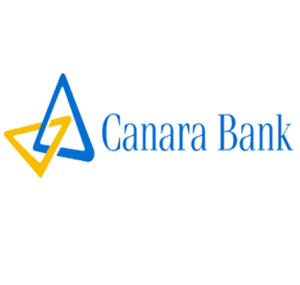
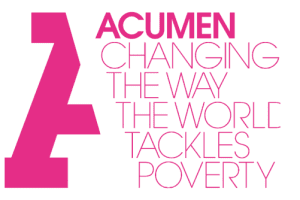
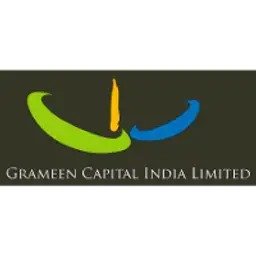
Awarded By
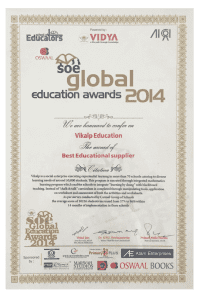
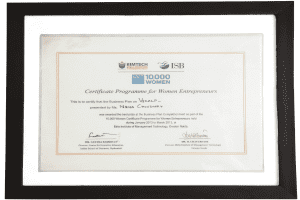
Supported By
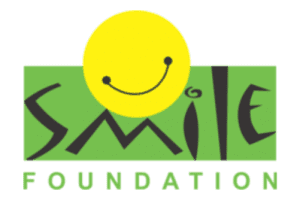

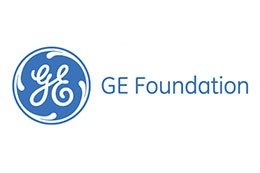
Questions? Call us at : +91-9910074585
Class 10 Online school for Young Learners
Our online classes program for Class 10 is meticulously crafted to align with the principles of the New Education Policy 2020. Our primary goal is to provide high-quality education while helping young learners prepare for Class 10 Board examination. These virtual lessons are thoughtfully customized to align with Class 10 syllabus, following the National Curriculum Framework endorsed by esteemed educational boards like CBSE, CISCE and NIOS.
Our Facilitators conduct engaging live online classes for CBSE Class 10 students, meticulously following Grade 10 curriculum lesson plans. This Distance Learning program for Grade 10 not only complies with Class 10 guidelines but also serves as an exemplary choice for students in this age group, offering them a fully experiential and well-suited approach to homeschooling.
It’s a very good alternative for students preparing for Medical, Engineering and other Competitive exams. Teacher conducts live interactive online classes based on the lesson plans of the Grade 10 Curriculum. These classes help students to prepare for both board and competitive examination from the comfort of their home. Students don’t waste time in travelling to school or coaching classes.
Experiential Learning with a Variety of Tools
In our E-Learning Class 10 Course, designed to enhance the educational experience for CBSE Class 10 online students, we transcend traditional online classes. Instead, we provide a comprehensive learning environment that caters to the diverse needs of CBSE Class 10 online learners. Within this program, students don’t rely solely on video content; instead, they actively engage with various innovative learning tools tailored for Class 10 online classes. These tools, such as Series & Parallel Electricity, Magnetic Effect of Electric Current, Trigonometry and Coordinate Geo Board, are thoughtfully integrated into the curriculum, ensuring that Class 10 online classes become an interactive and enriching experience for young learners.
Application through Coursebooks, Readers, and Workbooks
As students’ progress in their CBSE/NIOS Class 10 online education journey, they gradually transition to a balanced approach, combining experiential learning with traditional pen-and-paper learning experiences. This approach allows them to apply their knowledge effectively. Students are encouraged to apply their understanding through a variety of oral and written exercises thoughtfully integrated into coursebooks, readers, and workbooks provided to them. These materials ensure that Class 10 online students develop a well-rounded foundation by combining the benefits of experiential learning with traditional learning methods.
Enhanced Reading and Comprehension
A standout feature of our E-Learning online study for Class 10 is our focus on enhanced reading and comprehension skills. Within the context of online study for Class 10, we emphasize reading comprehension, vocabulary building, and critical thinking. Through this approach to online study for Class 10, students significantly enhance their reading skills, which are essential for academic success and beyond.
Impressive Enrollment Numbers
With a significant enrollment of students in our online learning program for Grade 10, we have received widespread acclaim for homeschooling and distance learning. The results have been remarkable, with students demonstrating significant improvements in their learning and overall understanding. Join our online classes program for Class 10 today to provide your child with an exceptional educational experience from the comfort of your home.
Impact on Child
This online learning program for Grade 10 is increasingly becoming popular for home schooling or distance learning, with over 2.10 lakh students enrolled. It’s a very good alternative for students preparing for Medical, Engineering and other Competitive exams. Teacher conducts live interactive online classes based on the lesson plans of the Grade 10 Curriculum. This Distance Learning for Grade 10 is arguably the best learning program for 15-year-olds as it is completely experiential and suitable for home schooling.
Syllabus & Certification
Online learning for Grade 10 students is based on New Education Policy 202O. The syllabus of Class 10 Online class is based on National Curriculum Framework followed by the National Education Boards in India – CBSE, CISCE and NIOS. After successful completion of curriculum, Marksheet + Certificate of CBSE/NIOS Board of Government of India will be issued. The impact has been phenomenal, with students showing significant improvement in their learning and understanding.

